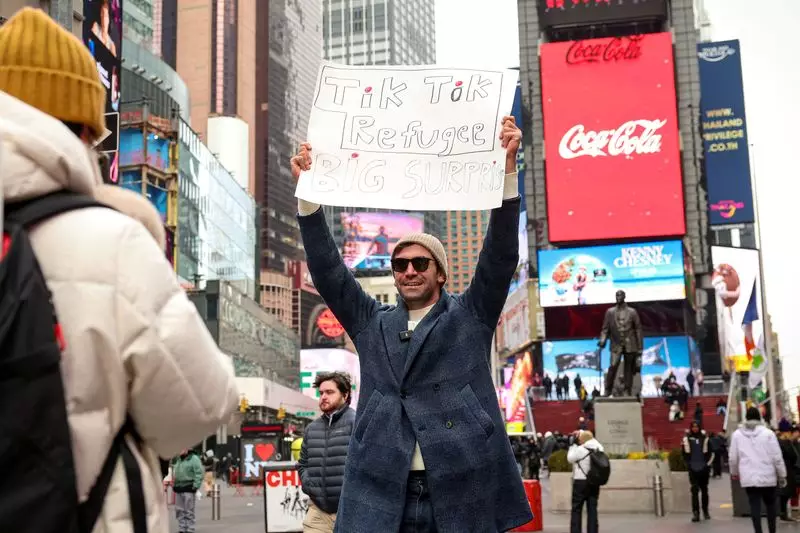TikTok, a social media platform that has captured the attention of millions across the globe, is facing an unprecedented crisis in the United States. In the wake of a potential government ban, the app, owned by the Chinese company ByteDance, finds itself at a critical juncture, one that could significantly impact its vast user base and the broader social media landscape.
On a Saturday filled with anxious chatter, users and stakeholders alike received news that TikTok could cease operations in the U.S. if the Biden administration does not provide assurances to tech giants like Apple and Google. The impending ban arises from national security concerns surrounding the app’s ties to China. With approximately 170 million American users, the ramifications of such a shutdown would be profound, not only for users who have integrated the platform into their daily lives but also for the businesses that rely heavily on its advertising model. Industry estimates suggest that TikTok’s U.S. revenue might hit $20 billion by 2025, underscoring the potential economic fallout if the platform were to go dark.
The legal framework for this ban emerged from a law enacted by President Biden in April, marking a significant moment in the U.S.-China tech divide. The unanimous approval by the Supreme Court adds an extra layer of urgency, as the potential closure raises questions about the future of digital engagement and the influence of foreign-owned applications on American soil.
Seeking Resolution: The Biden Administration’s Role
As the deadline lingered, the uncertainty around TikTok’s future commanded attention. The Biden administration’s stance appeared decisive—there would be no interventions to preserve the app before the cut-off. This reluctance opens the door for an array of complex legal dilemmas for associated companies, which may face lawsuits if they continued business with TikTok post-ban. The absence of any indication from Biden regarding a potential 90-day delay in the enforcement of the ban only heightened the sense of urgency.
Given TikTok’s immense user base, the fear of losing their platform has prompted users, prominently Gen Z, to consider alternative social media options. Competing platforms like RedNote, alongside established players such as Meta and Snap, have already started positioning themselves to absorb TikTok’s potential user exodus, leading to an uptick in their stock valuations driven by investor optimism.
Businesses and marketing agencies that have strategically aligned themselves with TikTok reacted swiftly, scrambling to develop contingency strategies. The sentiment among executives can be paraphrased as a “hair on fire” scenario—contrary to prior expectations that a resolution would be reached. The looming ban not only threatens existing revenue streams for countless digital marketing firms but also disrupts the entrepreneurial ecosystems that have flourished on the platform.
The political landscape, however, might still provide a glimmer of hope for TikTok. Incoming President Donald Trump has suggested a desire to engage in a “political resolution” regarding TikTok’s status. Media reports have speculated that Trump might pursue executive measures to delay the ban’s implementation for a potential period of 60 to 90 days, reflecting a complex interplay between politics and business.
As the January 20 inauguration approaches, TikTok’s CEO, Shou Zi Chew, plans to make a public presence among high-profile guests—a strategic move that signals the company’s intention to navigate the political landscape to its advantage. Speculations regarding a potential sale of TikTok’s U.S. operations to influential figures, including Elon Musk, have emerged, although the company has sought to dispel rumors of direct negotiations. Moreover, despite pressures, ByteDance’s ownership structure remains largely stable, with significant investment from major institutional players.
This moment in tech history serves as a reminder of the fragility of digital platforms amid global tensions. TikTok stands as a microcosm of the broader concerns regarding data security and the influence of foreign entities in the American digital space. Whatever the outcome—continued operations under new conditions, a forced sale, or ultimate ban—the implications for users, advertisers, and the social media landscape are staggering and will shape the future of global tech engagement for years to come.

